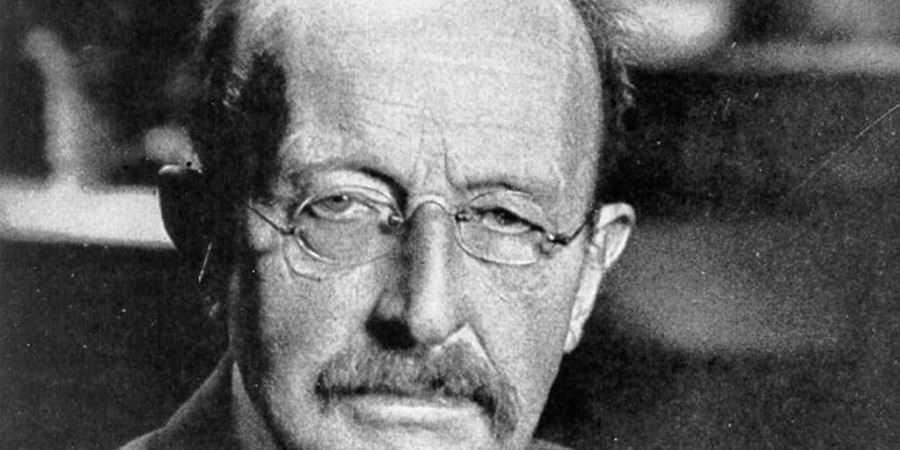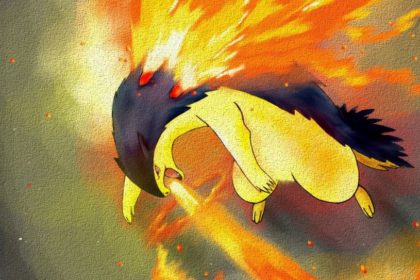Max Karl Ernst Ludwig Planck was a German theoretical physicist whose discovery of energy quanta won him the Nobel Prize in Physics in 1918. He made many contributions to theoretical physics, but his fame as a physicist rests primarily on his role as the originator of quantum theory, which revolutionized human understanding of atomic and subatomic processes. Take a look below for 30 more fun and interesting facts about Max Planck.
1. Planck was born in Kiel, Germany, and was the sixth child.
2. His father, grandfather and great-grandfather were all professors.
3. In 1867, he moved to Munich and entered the Maximilian Gymnasium.
4. Although he was a gifted musician and composer, he decided to study physics and entered the University of Munich in 1874.
5. In 1877, he studied physics with Hermann von Helmholtz and Gustav Kirchhoff in Berlin.
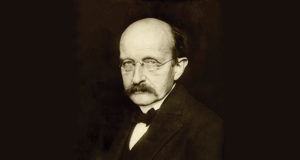
6. In February 1878, he defended his dissertation “On the Second Law of Thermodynamics” and in June of 1880, he reached the highest level of education when he presented his habilitation thesis, Equilibrium States of Isotropic Bodies at Different Temperatures.
7. Between 1880 and 1885, he continued his work on heat theory and in April 1885, he became the associate professor of theoretical physics at the University of Kiel.
8. In 1892, he became a full professor at the University of Berlin and in 1909, he was a Ernest Kempton Adams Lecturer in Theoretical Physics at Columbia University.
9. In 1894, he was commissioned to create energy efficient light bulbs and turned his attention to the problem of black-body radiation.
10. In 1897, he published his Treatise on Thermodynamics and proposed a basis for Arrhenius’s theory of electrolytic dissociation.
11. On December 14, 1900, he presented a paper to the German Physical Society outlining the Planck postulate which stated that electromagnetic energy could be emitted only in quantized form.
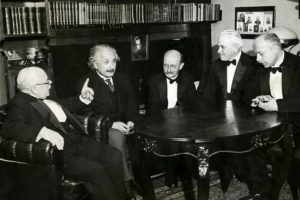
12. His 1900 paper is considered the birth of quantum physics and was considered one of the scientific breakthroughs that most influenced modern physics.
13. In recognition of his creation of a new branch of physics, he received the Nobel Prize in Physics in 1918.
14. In 1905, the Annals of Physics published three of Albert Einstein‘s papers on special relativity.
15. Planck immediately recognized their significance and worked to extend and publicize the special theory.
16. Planck was appointed Dean of Berlin University and, in 1914, created a professorship for Einstein there.
17. In February 1944, his home was completely destroyed by Allied bombs and all of his papers were lost.
18. Planck’s home in Berlin was a social center for local scientists, including Albert Einstein, Otto Hahn and Lise Meitner and they enjoyed playing music together.
19. Planck got honorary doctorates from the universities of Frankfurt, Rostock, Athens, Cambridge, Berlin, Graz, London, Munich and Glasgow.
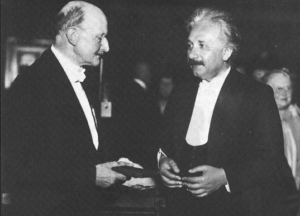
20. The asteroid 1069 was named after him as “Stella Planckia” by the International Astronomical Union in 1938.
21. Based on the concept that energy produced by a resonator could only take on separate values or quanta, he deduced that the energy for a resonator of frequency “v” is “hv” where “h” is a universal constant, now named Planck’s constant.
22. Planck’s work on quantum theory was published in the Annalen der Physik and his work is summarized in 2 books Thermodynamik and Theorie der Warmestrahlung.
23. Planck was a member of the Lutheran Church in Germany and was very tolerant towards alternative views and religions.
24. In a lecture in 1937 titled “Religion und Naturwissenschaft” he suggested the importance of these symbols and rituals related directly with a believer’s ability to worship God, but that one must be mindful that the symbols provide an imperfect illustration of divinity.
25. In his 1937 lecture, Planck expressed the view that God is everywhere present, and held that, “the holiness of the unintelligible Godhead is conveyed by the holiness of symbols.”
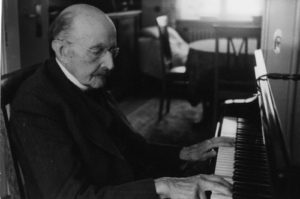
26. Planck regarded the scientist as a man of imagination and Christian faith.
27. Later in his life, Planck’s views on God were that of a deist. For example, six months before his death a rumor started that Planck had converted to Catholicism, but when questioned what had brought him to make this step, he declared that, although he had always been deeply religious, he didn’t believe, “in a personal God, let alone a Christian God.”
28. In 1945, Planck’s son Erwin was arrested following the attempted assassination of Hitler in the July 20 Plot.
29. Erwin died at the hands of the Gestapo. His death destroyed much of Planck’s will to live.
30. After World War II ended, Planck, his second wife and his son by her were brought to a relative in Gottingen, where Planck died on October 4, 1947.

